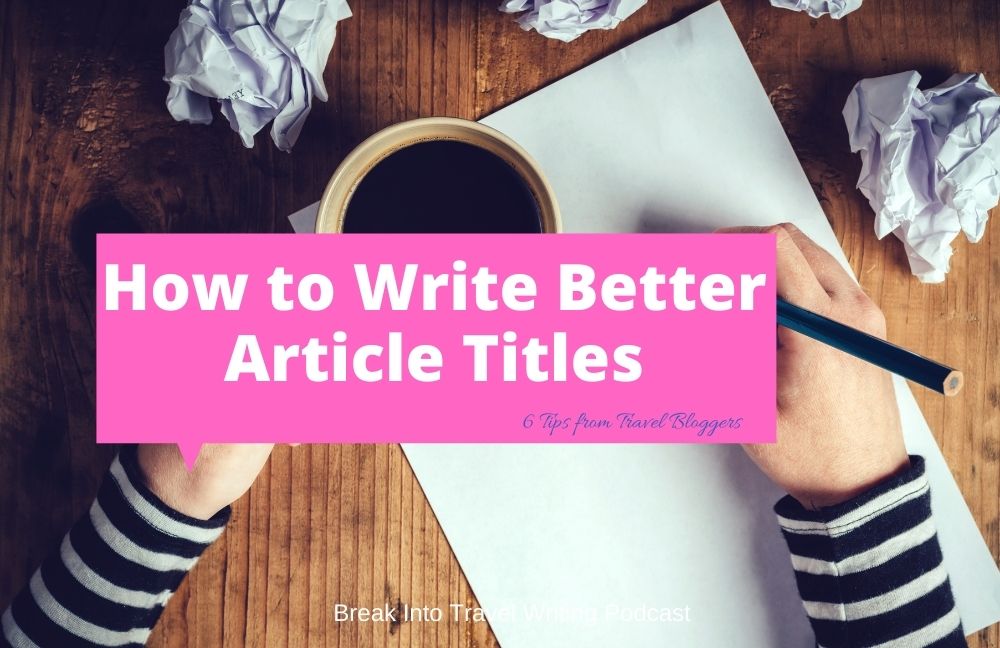The title of your paper is one of the most important aspects of your paper. It will determine whether the reader reads the entire manuscript or not. It must capture the reader’s attention and contain relevant “keywords.” A good title should clearly state what the paper is about and be interesting. It can be written as a short phrase or a full sentence and should contain the main conclusion of the study.
Avoid irony
When writing an article title, avoid using irony, unless you are trying to make your audience laugh. Irony can be a powerful literary device when used appropriately. Irony refers to situations in which an action has the opposite effect than intended, and it has an unexpected result. Great screenwriters avoid making their characters predictable by adding plenty of ironic scenes to their works. In other words, irony is a clever way to add character development and enhance your writing.
While irony is sometimes used as an example, it can be a negative strategy. Ironic statements are usually based on the opposite of what the speaker means to say. For example, “there’s nothing like porridge” implies that it is “delicious” but is actually a negative statement. In this situation, the speaker’s opinion of the product is different from the reader’s, but the audience sees it differently.
Avoid puns
While using irony or puns in your title can attract more readers, you may find that it has the opposite effect. Puns and humorous titles tend to be more difficult to read and understand for non-native speakers. In addition, humor titles tend to appear less frequently in search results, as they are culture-specific. Avoid these mistakes at all costs! Here are some suggestions to make your title more appealing to readers.
First, avoid using titles that are too cheesy or overly popular. For example, Burger King, Starbucks, and Trader Joe’s all have pun-laden titles. A pun-filled article title may refer to the marital woes of British soccer star Ryan Giggs. Or it could refer to the award-winning movie Saving Private Ryan. Similarly, a pun-filled article title could refer to the dangers of nuclear weapons.
Avoid humor
Many academics use humour in their article titles, but there is little literature about the use of humour in academic papers. One evolutionary ecologist, Stephen Heard, says that when an article is about a particular topic, it may be tempting to use a joke as the title. Although it is not strictly necessary, using humour in an article title can make it more memorable.
One way to avoid using humour in your article titles is to keep them short and to the point. Humor can be amusing but it can also be jarring. For example, “Creole and Unusual Punishment” is a real title and pun on Louisiana’s Capital Rape Statute. While humorous titles are fine, a joke about the death penalty may alienate readers more than they’ll amuse them, so avoid these titles if possible. Sarcasm can also make your work seem cheap or disrespectful.
Avoid obfuscation
There are several ways to make sure your paper’s title reflects the substance of your content. Avoid using words such as “first” or “novel,” as these obfuscate the essence of the title. For example, titles containing a laundry list of possible applications don’t inspire confidence in the authors and don’t suggest a deep examination of any material.
One method is to use selective obfuscation, in which you replace sensitive information in your document with another instance of the same type. This method preserves the readability of the transformed document while preventing the information from being easily deciphered by a third party. This method is often used when the content of an article’s title is too lengthy or complex to be conveyed through a single sentence.
Avoid turgidity
A paper abstract is an essential part of a research paper. It should provide the reader with some background information about the subject of the article, but should not be turgid. To avoid turgidity, start with a clean slate. Instead of writing a long, rambling piece about your research topic, start with a brief incident, episode, or news item from history.
Avoid abbreviations
When writing the title of your article in a paper, you should avoid using abbreviations. You should use full terms, not acronyms, for the sake of avoiding confusion. For example, when referring to the National Health Service, write the full name first, and then use the abbreviation NHS thereafter. Make sure you explain why you use these abbreviations. Here are some examples of abbreviations and how to avoid using them.
First of all, you must remember the rules of APA style. It recommends using full names first, followed by an abbreviation, unless the abbreviation is part of the name. However, there are exceptions to the rules. For example, the term “American Psychological Association” is abbreviated “APA.” If you must use an abbreviation, make sure you put it in parentheses and follow it with a period.


